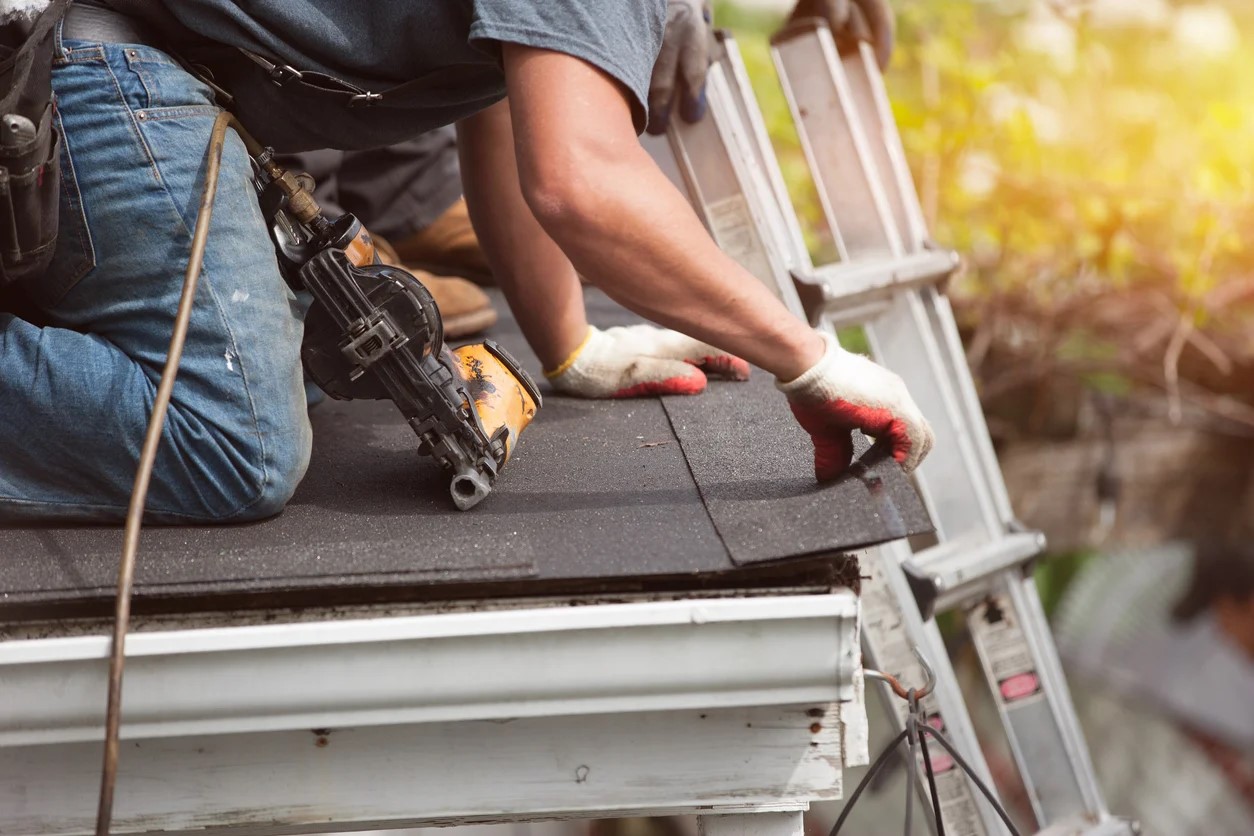Home>Renovation & DIY>Home Renovation Guides>What Home Improvements Should You Inform Your Insurance About


Home Renovation Guides
What Home Improvements Should You Inform Your Insurance About
Modified: January 4, 2024
Learn which home renovations you need to inform your insurance company about. Get expert guidance on home improvement projects and insurance considerations.
(Many of the links in this article redirect to a specific reviewed product. Your purchase of these products through affiliate links helps to generate commission for Storables.com, at no extra cost. Learn more)
Introduction
Embarking on home improvement projects is an exciting endeavor, whether you’re renovating your kitchen, adding a new room, or enhancing your outdoor living space. While the focus is often on the aesthetic and functional benefits of these projects, it’s crucial to consider the impact they may have on your home insurance policy. In this comprehensive guide, we’ll explore the importance of informing your insurance company about home improvements and provide insights into the specific projects that should be reported. Additionally, we’ll discuss the process of informing your insurance company and the potential implications of failing to do so. By the end of this article, you’ll have a clear understanding of why, when, and how to communicate with your insurance provider about your home improvement endeavors.
Key Takeaways:
- Keep your insurance company in the loop about major home improvements to ensure your policy accurately reflects your property’s value and safety features, preventing potential disputes and claim denials.
- Informing your insurer about significant upgrades like room additions, renovations, and security systems fosters a transparent and collaborative relationship, potentially leading to cost-saving opportunities and tailored coverage options.
Why Should You Inform Your Insurance Company?
Informing your insurance company about home improvements is essential for several reasons. Firstly, it ensures that your policy accurately reflects the current state and value of your home. When you make significant improvements, such as adding a new room, upgrading your kitchen, or installing a new roof, the replacement cost of your home increases. Failing to update your insurance company about these changes could leave you underinsured in the event of a claim, as your policy may not adequately cover the enhanced value of your home and its contents.
Moreover, certain home improvement projects may affect the safety and risk profile of your property. For instance, if you install a swimming pool, a wood-burning stove, or a security system, these additions could impact your liability and property risks. By informing your insurance company about such modifications, you allow them to assess the associated risks and make any necessary adjustments to your policy to ensure adequate coverage.
Another crucial reason to inform your insurance company about home improvements is to safeguard your investment. Renovations and additions represent substantial financial investments, and you’ll want to protect these assets with the appropriate insurance coverage. Failing to report these improvements could result in disputes or claim denials if the insurer discovers unreported changes to your property.
Furthermore, certain insurance companies offer coverage options or discounts for specific home features or upgrades. By keeping your insurer informed about your home improvements, you may be eligible for discounts or additional coverage options that align with the enhanced features of your property. This proactive approach can lead to cost savings and more comprehensive protection for your home and belongings.
Ultimately, informing your insurance company about home improvements fosters transparency and accountability. It establishes a clear line of communication between you and your insurer, ensuring that both parties have a comprehensive understanding of the property’s status and coverage needs. This transparency can streamline the claims process and minimize the potential for disputes in the event of a loss.
Home Improvement Projects that Should Be Reported
When considering which home improvement projects should be reported to your insurance company, it’s essential to focus on significant changes that can impact the value, safety, and risk profile of your property. While minor cosmetic upgrades such as painting or installing new fixtures may not require immediate reporting, the following projects typically warrant communication with your insurer:
- Room Additions: Any expansion of your home, such as adding a new bedroom, bathroom, or living space, should be reported. These additions significantly increase the replacement cost of your home and may necessitate adjustments to your coverage.
- Major Renovations: Extensive renovations, such as kitchen remodels, bathroom upgrades, or basement finishing, can substantially enhance the value of your property. Informing your insurer about these improvements ensures that your policy reflects the increased value and quality of your home.
- Roof Replacement: Installing a new roof is a substantial investment that can impact your insurance coverage. Notifying your insurance company about this upgrade is crucial, as it may affect your policy’s terms and premium.
- Swimming Pool or Hot Tub Installation: Adding a swimming pool, hot tub, or other significant water features can introduce liability and safety concerns. Reporting these additions allows your insurer to assess the associated risks and adjust your coverage accordingly.
- Home Security Systems: Installing a comprehensive security system, including alarms, cameras, and monitoring services, can enhance the safety and security of your home. Informing your insurance company about these improvements may lead to potential discounts on your policy.
- Structural Changes: Any structural modifications, such as adding a garage, expanding the footprint of your home, or building a new deck, should be communicated to your insurer. These changes can impact the replacement cost and risk profile of your property.
It’s important to note that the specific requirements for reporting home improvements may vary among insurance companies and policies. Therefore, it’s advisable to review your policy documents or consult with your insurance agent to understand the reporting guidelines and ensure compliance with your coverage obligations.
By proactively informing your insurance company about these significant home improvement projects, you can mitigate the risk of being underinsured, enhance the safety and security of your property, and maintain a transparent and collaborative relationship with your insurer.
When making home improvements, always inform your insurance company about major changes like adding a new room, upgrading electrical or plumbing, or installing a new roof. This ensures that your coverage is up to date and you’re protected in case of any damage.
How to Inform Your Insurance Company
Effectively communicating home improvements to your insurance company involves a structured approach to ensure that the necessary information is accurately conveyed and documented. Follow these steps to inform your insurer about the relevant changes to your property:
- Review Your Policy: Before initiating the communication process, review your insurance policy to understand the reporting requirements and any specific procedures outlined by your insurer. This step will help you prepare the relevant details and ensure compliance with your policy obligations.
- Compile Documentation: Gather documentation related to the home improvements, including permits, invoices, and contracts. Having this documentation on hand will facilitate the accurate reporting of the project details and the associated costs.
- Notify Your Agent or Insurer: Contact your insurance agent or insurer to inform them about the home improvements. Provide a comprehensive overview of the changes, including the nature of the project, the timeline of completion, and the impact on the property’s value and risk profile.
- Request an Assessment: If necessary, request an assessment or appraisal of the improved property to determine the updated replacement cost and any adjustments required for your coverage. This step is particularly important for significant renovations or additions that substantially enhance the property’s value.
- Document Confirmation: Upon notifying your insurer, request written confirmation of the changes to your policy. This documentation serves as a vital record of the communication and ensures that the reported improvements are officially acknowledged and reflected in your coverage.
- Review Updated Policy Documents: Once the reporting process is complete, carefully review the updated policy documents provided by your insurer. Confirm that the reported home improvements are accurately reflected in the policy, including any adjustments to the coverage and premium.
It’s important to maintain open and proactive communication with your insurance company throughout the reporting process. By providing clear and detailed information about your home improvements and promptly addressing any inquiries from your insurer, you can ensure that your policy accurately aligns with the current state and value of your property.
Remember that timely and thorough communication with your insurer not only helps protect your investment but also fosters a collaborative and transparent relationship, laying the foundation for a smooth and reliable insurance experience.
Conclusion
Informing your insurance company about home improvements is a proactive and essential aspect of maintaining comprehensive coverage and protecting your investment. By communicating the relevant changes to your property, you ensure that your policy accurately reflects the enhanced value, safety features, and risk profile of your home. This transparency and collaboration with your insurer can mitigate the risk of being underinsured and facilitate a smoother claims process in the event of a loss.
When considering which home improvement projects should be reported, focus on significant upgrades that impact the property’s value, safety, and liability risks. Room additions, major renovations, roof replacements, and installations of features such as swimming pools, security systems, and structural modifications typically warrant communication with your insurer.
To effectively inform your insurance company about these improvements, follow a structured approach that includes reviewing your policy, compiling documentation, notifying your insurer, requesting assessments if necessary, and documenting confirmation of the reported changes. This proactive and detailed communication ensures that your insurer has a comprehensive understanding of the modifications to your property and can make any necessary adjustments to your coverage.
Ultimately, the process of informing your insurance company about home improvements fosters transparency, accountability, and a collaborative relationship. It allows both parties to work together to ensure that your policy aligns with the current state and value of your home, providing you with the peace of mind that comes with adequate and tailored insurance coverage.
By prioritizing open communication and timely reporting of home improvements, you can safeguard your investment, enhance the safety and security of your property, and potentially access cost-saving opportunities and additional coverage options. This proactive approach not only protects your home and belongings but also lays the groundwork for a reliable and supportive partnership with your insurance provider.
Frequently Asked Questions about What Home Improvements Should You Inform Your Insurance About
Was this page helpful?
At Storables.com, we guarantee accurate and reliable information. Our content, validated by Expert Board Contributors, is crafted following stringent Editorial Policies. We're committed to providing you with well-researched, expert-backed insights for all your informational needs.
















0 thoughts on “What Home Improvements Should You Inform Your Insurance About”